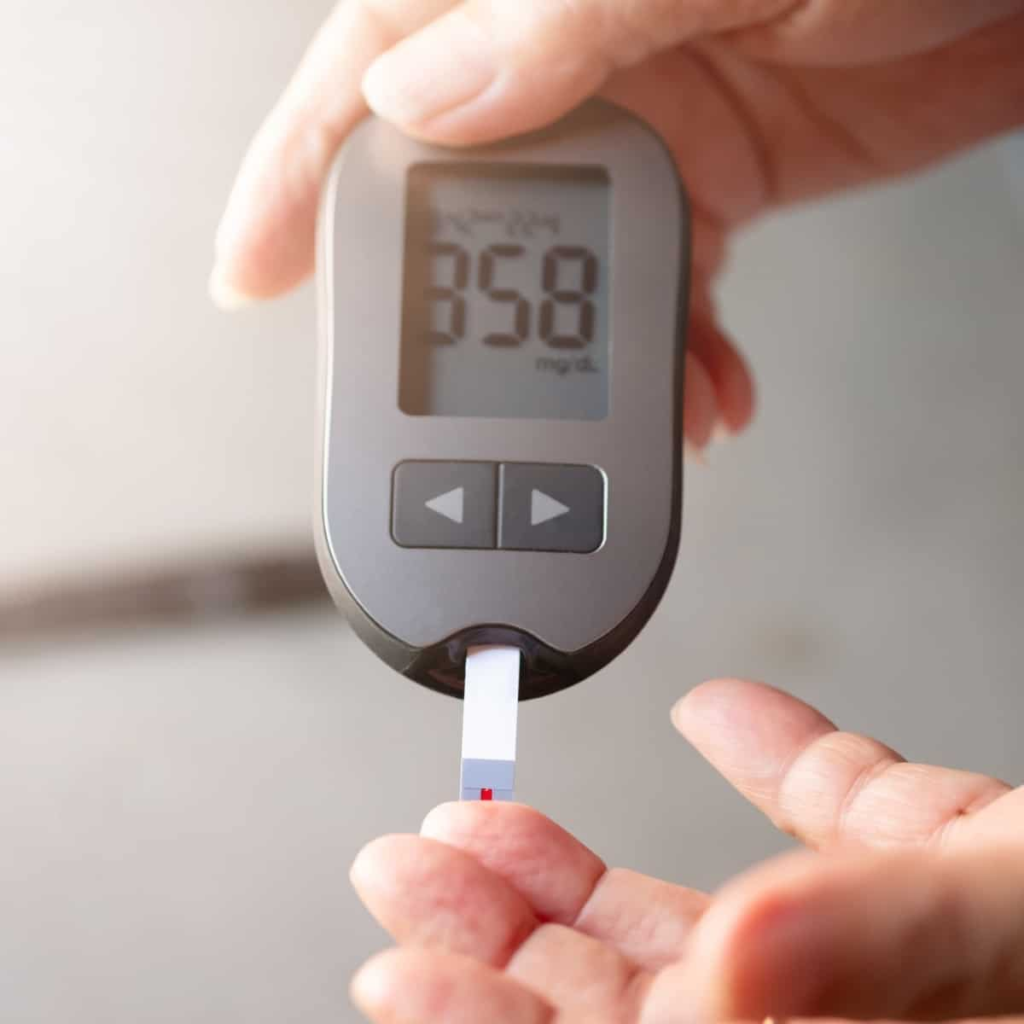CDC says you should always keep an eye on your blood sugar range. It should be 80-130 mg/dL before a meal and 180 mg/dL or less after two hours of breakfast, lunch, and dinner.
This range can differ for different people because factors like comorbidities, medications, and age also count.
A person with diabetes should routinely check their blood glucose on an empty stomach in the morning, two hours before mealtimes, and before going to bed at night.
Plus, it helps if you stay in touch with your primary care provider or health specialist to manage any fluctuations.
Insulin resistance and transformation in body chemistry can make you vulnerable to type 2 diabetes. Others who don’t have diabetes but notice spikes in their blood glucose also need to be wary.
High sugar can also harm your nerves, kidney, and eye. However, as you may be aware, emergencies happen unannounced. Some signals are easy to miss in a busy life.
But you can manage the fluctuations with some daily lifestyle habits and knowing how to lower blood sugar fast when it is too high. So, here are a few insights.
Quickly control your high blood sugar levels.

Lack of or inadequate use of insulin in the body can increase your blood glucose. While bringing high sugar levels down can be challenging in an instant, some strategies can help manage your condition well.
For instance, prescription fast-acting insulin is one thing. Use the proper dose as instructed by your healthcare specialist. Monitor your sugar levels after 15 to 30 minutes to confirm any improvement.
It shouldn’t go down too much. You can also do exercises that help your heart function. Cycling, walking, and jogging can be good. Experts say exercising can maintain your blood sugar levels for about 24 hours.
If your blood glucose range is 240 mg/dl, you must check ketones in the urine before exercising. The acidic compound can induce health complications.
Importance of checking your high blood sugar levels

People with diabetes need to care more for their health to avoid the long-term ill effects of the condition, which can translate into vision loss, kidney damage, heart problem, etc.
If you maintain your sugar levels, your mood and energy will improve, and many health complications will be avoidable.
While diet and exercise can be the highlight, you can take some guided steps to manage your blood glucose levels better.
For instance, holistic treatment by natural medicine doctors can be a good example.
You must realize that a high blood sugar level is a risk, and it’s necessary to keep it in check with proper measures. Talk to your health specialist, share your concerns, and follow their advice.
A close watch on your health will help you lead a better life. You can feel better with your energy and mood.
Lifestyle changes, continuous monitoring, diet, medications, exercises, and other things can positively impact your life. So, take good care of your blood sugar and stay as healthy as possible.

Jean Smith is a fitness enthusiast and blogger who focuses on fitness and a healthy lifestyle. She is passionate about assisting people in living healthier lifestyles and is constantly on the lookout for new and creative methods to stay fit and healthy. Her articles are excellent resources for anyone interested in improving their health and fitness.
